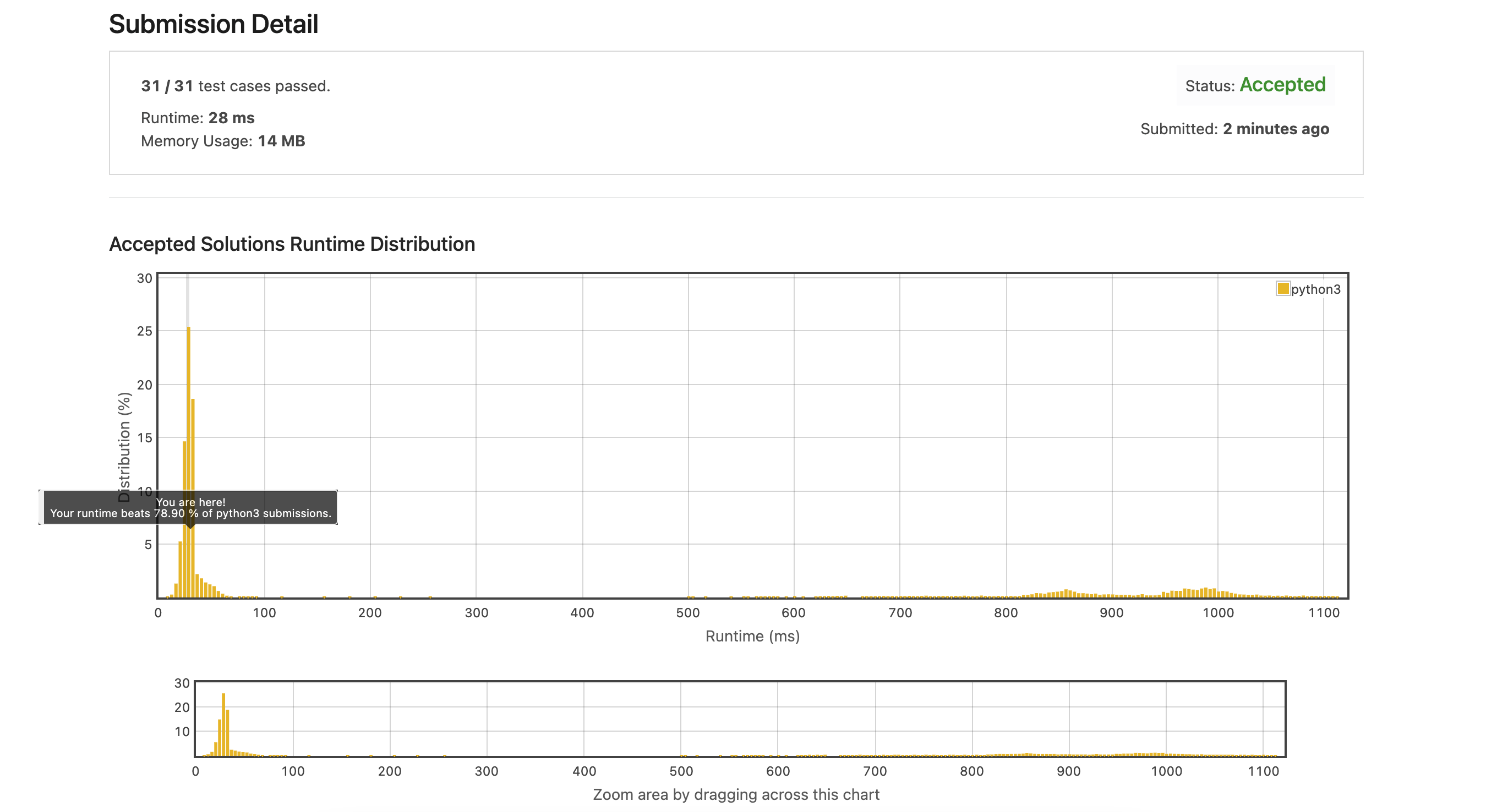Notice
Recent Posts
Recent Comments
| 일 | 월 | 화 | 수 | 목 | 금 | 토 |
|---|---|---|---|---|---|---|
| 1 | ||||||
| 2 | 3 | 4 | 5 | 6 | 7 | 8 |
| 9 | 10 | 11 | 12 | 13 | 14 | 15 |
| 16 | 17 | 18 | 19 | 20 | 21 | 22 |
| 23 | 24 | 25 | 26 | 27 | 28 | 29 |
| 30 |
Tags
- 코로나19
- SW Expert Academy
- 캐치카페
- 편스토랑 우승상품
- 더현대서울 맛집
- 데이콘
- 편스토랑
- 프로그래머스 파이썬
- Baekjoon
- PYTHON
- dacon
- programmers
- gs25
- Kaggle
- 파이썬
- 프로그래머스
- ChatGPT
- 백준
- 자연어처리
- Real or Not? NLP with Disaster Tweets
- 맥북
- AI 경진대회
- Git
- hackerrank
- github
- ubuntu
- 금융문자분석경진대회
- Docker
- 우분투
- leetcode
Archives
- Today
- Total
솜씨좋은장씨
[leetCode] 509. Fibonacci Number (Python) 본문
728x90
반응형

The Fibonacci numbers, commonly denoted F(n) form a sequence, called the Fibonacci sequence, such that each number is the sum of the two preceding ones, starting from 0 and 1. That is,
F(0) = 0, F(1) = 1
F(N) = F(N - 1) + F(N - 2), for N > 1.Given N, calculate F(N).
Example 1:
Input: 2
Output: 1
Explanation: F(2) = F(1) + F(0) = 1 + 0 = 1.Example 2:
Input: 3
Output: 2
Explanation: F(3) = F(2) + F(1) = 1 + 1 = 2.Example 3:
Input: 4
Output: 3
Explanation: F(4) = F(3) + F(2) = 2 + 1 = 3.
Note:
0 ≤ N ≤ 30.
Solution
class Solution:
def fib(self, N: int) -> int:
n = N
fiboNum = 0
if n == 1:
fiboNum = 1
elif n == 2:
fiboNum = 1
elif n >= 3:
fibo = [0] * (n)
fibo[0] = 1
fibo[1] = 1
for i in range(2, n):
fibo[i] = fibo[i-1] + fibo[i-2]
fiboNum = fibo[n-1]
return fiboNum

SOMJANG/CODINGTEST_PRACTICE
1일 1문제 since 2020.02.07. Contribute to SOMJANG/CODINGTEST_PRACTICE development by creating an account on GitHub.
github.com
'Programming > 코딩 1일 1문제' 카테고리의 다른 글
| [leetCode] 1351. Count Negative Numbers in a Sorted Matrix (Python) (0) | 2020.11.03 |
|---|---|
| [leetCode] 1137. N-th Tribonacci Number (Python) (0) | 2020.11.02 |
| [leetCode] 482. License Key Formatting (Python) (0) | 2020.10.31 |
| [leetCode] 219. Contains Duplicate II (Python) (0) | 2020.10.28 |
| [leetCode] 217. Contains Duplicate (Python) (0) | 2020.10.26 |
Comments





